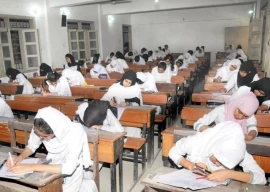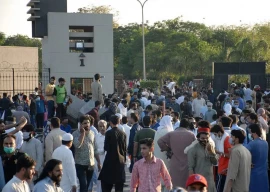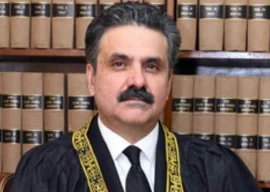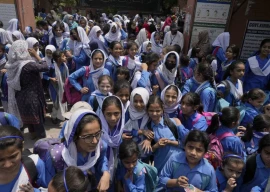
One day, one of them not only wise but apolitical to the core, looked rather worried. “The only way I can keep the army out is by pleading with the government not to take the country over the brink”; he loudly thought. His pleadings were too loud for the prime minister’s otherwise deaf ears, but he was certainly thinking on the right lines.
When commanding a brigade, I was once ordered to move troops to avert a sectarian clash. My initial reaction was that we were handed over the problem too early — before the civil administration had done its first line duties. It did not take us long to restore order which reinforced my misgivings. In due course, I came to the conclusion that the civilian timings were perfect. Any delay would have only exacerbated the conflict. More importantly, the army succeeded not because of our man-or-firepower but because of its standing amongst the people.
‘Call-in the fire brigade early otherwise the other one, the 111, might come to stay’, became for many of us the mantra to keep the military out of politics. (It predates another doctrine that was premised on the notion that the army was best kept out if it was already in.) Some of us from the pre-Pervez Musharraf era were therefore not too surprised when Altaf Hussain called upon the “patriotic generals” to come extinguish the fire before it went wild. One is a bit astonished though at the furore it has unleashed. Of course, the ones with vested interest in the status quo should be crying murder. Those who in principle oppose army’ dabbling in politics have indeed better grounds. I do, however, have a problem with the “save the system” brigade.
‘An uninterrupted democratic process will in due course cleanse itself’, is a myth that has run its course. Maybe it could, provided there were no structural flaws. Otherwise, it must get further skewed. When every election instead of filtering out the morass throws up a bit more and with every passing moment the system wobbles like never before, it was time this theory of evolution got another look — or else the props under our leaning tower would no longer withstand quakes and tsunamis.
In any case, if the idea was to keep the army out, the remedy is simple: mobilise the civil society against a takeover and the triple one would be held back. It is of course easier to activate the streets and have the fire alarm ringing. Altaf Hussain can do both and what he says therefore matters. What can you do, ladies and gentlemen of the sound and fury brigade?
The late president, Ghulam Ishaq Khan, who had treaded the corridors of power for over half a century, used to say: “Don’t waste time advising the army or second-guessing its actions; these chaps don’t like either”. Some loud thinking was all the same in order. Even if the GHQ did respond to the clarion call, we still would not know what this time around would follow the triple one: a sanitary brigade to cleanse the system, or the engineers to demolish it.
Published in The Express Tribune September 3rd, 2010.




1734609344-0/Untitled-(69)1734609344-0-165x106.webp)






1734468458-0/Copy-of-Untitled-(50)1734468458-0-270x192.webp)

1734511806-0/Untitled-design-(5)1734511806-0-270x192.webp)









COMMENTS (23)
Comments are moderated and generally will be posted if they are on-topic and not abusive.
For more information, please see our Comments FAQ